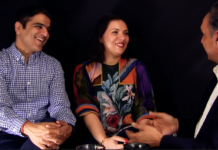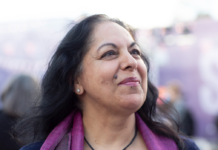CAMBIRDGE, MA–Teaching at the Right Level (TaRL) Africa, a joint venture between Pratham and MIT’s Abdul Latif Jameel Poverty Action Lab (J-PAL), has been named one of five recipients of an $80 million commitment from the global philanthropic collaborative Co-Impact, Pratham said in a statement.
Selected from a pool of more than 250 projects, the grant was awarded to change-makers with proven strategies in education, health and economic opportunity.
Despite progress worldwide in school enrollment, millions of children are not acquiring basic foundational skills. Pioneered by Pratham, the TaRL methodology significantly raises children’s basic learning levels in a short period of time. The approach uses a simple tool to assess children’s ability to read and do arithmetic, grouping them by level rather than grade and advancing them to the next learning group as they progress and continue to grow, the statement said.
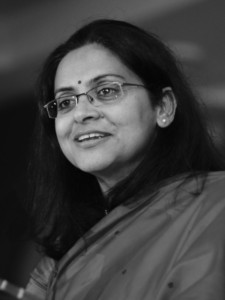
Six randomized control trials conducted in India by J-PAL-affiliated researchers over the past two decades have shown that the approach, whether delivered by Pratham staff or trained teachers in government-run schools, has led to some of the largest, most cost-effective learning gains of any primary education program evaluated.
“Using Teaching at the Right Level,” explains Dr. Rukmini Banerji, CEO of Pratham, “we have helped millions of children to read and to do basic math in India. Together with J-PAL, we are excited to have the opportunity to work in Africa with many partners. Foundational skills can transform a child’s life and unlock their potential to do so much more in education and in life. We are grateful for Co-Impact’s support for this partnership.”
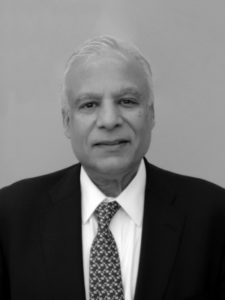
The multi-year grant from Co-Impact will support Pratham and J-PAL in building the capacity of governments and other partners in multiple countries across Africa, including Ivory Coast, Nigeria, and Zambia, to design and scale TaRL-like approaches that will help three million primary school children learn to read and do basic arithmetic.
“This grant is a true validation of Pratham’s efforts in pioneering innovative, cost-effective learning solutions,” asserts Pratham USA Chairman Deepak Raj. “While our focus remains on addressing India’s education crisis, we are proud to see Pratham’s methodology replicated in other countries, where it will have a lasting impact on millions of children.”
Shifting the focus from school enrollment to learning outcomes in Africa will require critical support at all levels. This includes adjusting the approach to local contexts, training and assisting on-site mentors and continually assessing progress while empowering government officials and teachers to act on the evidence generated.
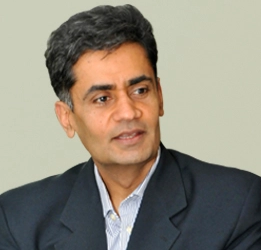
According to Iqbal Dhaliwal, Executive Director of J-PAL, “This grant represents the critical importance of using evidence from rigorous impact evaluations to drive decision-making. Our partnership with Pratham is based on innovation, learning, and a unifying vision—shared with Co-Impact—of creating systems-level change. Through investing in rigorous research and evidence-backed approaches, we can disrupt the status quo and transform lives. We have a lot of work ahead of us and are putting together an outstanding team to lead and execute this exciting initiative.”
Co-Impact, the global philanthropic collaborative formed in 2017 by Olivia Leland with commitments from Richard Chandler, Bill and Melinda Gates, Jeff Skoll, The Rockefeller Foundation, and Rohini and Nandan Nilekani, aims to drive social change through investment in proven solutions that are ready to be scaled even further. “We know that investing in the lives of the poorest families and children around the world is probably the highest return on investment we can make,” says Rockefeller Foundation President Rajiv Shah. “We’ve designed a project where as philanthropists, we’re standing on each others’ shoulders to scale the hardest and highest walls in philanthropy.”
Pratham is an innovative learning organization. Set up almost 25 years ago, Pratham believes that every child should be in school and learning well. Pratham means ‘first’ or “primary” in Sanskrit. As one of the largest non-governmental organizations in the country, Pratham facilitates India’s well-known Annual Status of Education Report (ASER) exercise, which has been providing estimates of reading and arithmetic skills every year for every rural district in India since 2005. On the intervention side, for the past two decades and more, Pratham has focused on high-quality, low-cost learning improvement interventions that help millions of children progress and thrive. Working directly with communities and schools, Pratham reaches close to a million children every year. Working in partnership with state governments, Pratham is able to contribute to the learning improvement of several million children annually.
Pratham USA is a 501(c)(3) nonprofit organization with a consistent four-star rating from Charity Navigator that seeks to raise awareness and mobilize financial resources for its work in India. For more information, visit prathamusa.org.
The Abdul Latif Jameel Poverty Action Lab (J-PAL) is a global research center based at the Massachusetts Institute of Technology (MIT) working to reduce poverty by ensuring that policy is informed by scientific evidence. Anchored by a network of more than 170 affiliated professors at universities around the world, J-PAL draws on results from randomized impact evaluations to answer critical questions in the fight against poverty. We build partnerships with governments, NGOs, donors, and others to share this knowledge, scale up effective programs, and advance evidence-informed decision-making. J-PAL was launched at the MIT in 2003 and has regional centers in Africa, Europe, Latin America & the Caribbean, North America, South Asia, and Southeast Asia. For more information, visit povertyactionlab.org.








